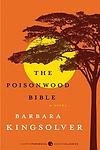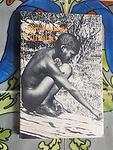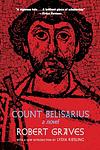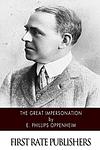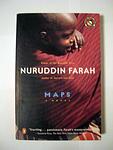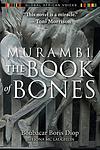The Greatest "Historical fiction, Africa" Books of All Time
Click to learn how this list is calculated.
This list represents a comprehensive and trusted collection of the greatest books. Developed through a specialized algorithm, it brings together 300 'best of' book lists to form a definitive guide to the world's most acclaimed books. For those interested in how these books are chosen, additional details can be found on the rankings page.
Genres
Historical fiction is a genre of literature that combines fictional stories with real historical events, settings, and characters. These books often take place in a specific time period and are based on research and factual information, but also include imaginative elements to create a compelling narrative. Historical fiction allows readers to experience the past in a unique and engaging way, while also providing insight into the social, cultural, and political issues of the time.
The "Africa" category for books encompasses literature that is set in or about the continent of Africa, its people, cultures, and history. This category includes a diverse range of genres, including fiction, non-fiction, memoirs, biographies, and historical accounts. The books in this category explore the complexities of African societies, their struggles, triumphs, and the impact of colonialism and globalization on the continent. The Africa category offers readers a window into the rich and diverse cultures of Africa, and the challenges and opportunities facing the continent in the modern world.
Countries
Date Range
Reading Statistics
Click the button below to see how many of these books you've read!
Download
If you're interested in downloading this list as a CSV file for use in a spreadsheet application, you can easily do so by clicking the button below. Please note that to ensure a manageable file size and faster download, the CSV will include details for only the first 500 books.
Download-
1. Things Fall Apart by Chinua Achebe
This novel explores the life of Okonkwo, a respected warrior in the Umuofia clan of the Igbo tribe in Nigeria during the late 1800s. Okonkwo's world is disrupted by the arrival of European missionaries and the subsequent clash of cultures. The story examines the effects of colonialism on African societies, the clash between tradition and change, and the struggle between individual and society. Despite his efforts to resist the changes, Okonkwo's life, like his society, falls apart.
-
2. A Bend in the River by V. S. Naipaul
"A Bend in the River" is a novel that follows an Indian man, Salim, who moves from the East Coast of Africa to the heart of the continent to open a store in a small, remote town at a bend in the river. The book explores the changes that occur in the town as it evolves from a sleepy outpost to a bustling city. It also delves into Salim's personal struggles and the challenges he faces in adapting to a rapidly changing society, all set against the backdrop of post-colonial Africa.
-
3. The Poisonwood Bible by Barbara Kingsolver
The Poisonwood Bible is a novel that follows the experiences of a missionary family in the Belgian Congo during the 1960s. The story is told from the perspective of the wife and four daughters of the Baptist minister who drags his family into the politically volatile Congo on a mission to save souls. The novel explores themes of cultural arrogance, religious zeal, and the clash of Western and African values, as well as the personal growth and self-discovery of the women in the family as they grapple with the harsh realities of their new life and the fallout from their father's single-minded vision.
-
4. Roots by Alex Haley
This groundbreaking historical novel follows several generations of an African American family, beginning with Kunta Kinte, a man captured in Gambia in the 18th century and sold into slavery in the United States. Through Kinte and his descendants, the narrative explores the brutal realities of slavery and its aftermath, the struggle for freedom and civil rights, and the perseverance of a family through immense hardship. The story is based on the author's own family history, making it a significant work in the exploration of African American heritage and identity.
-
5. Half of a Yellow Sun by Chimamanda Ngozi Adichie
The novel is set in Nigeria during the Biafran War, exploring the impact of the conflict on the lives of its characters. The story is told from the perspective of three characters: a young houseboy, a radical university professor, and the professor's wealthy lover. The narrative delves into themes of love, race, and war, offering a vivid depiction of the horrors of conflict and the resilience of the human spirit.
-
6. A Dry White Season by Andre Brink
Set in apartheid-era South Africa, "A Dry White Season" follows the story of Ben Du Toit, a white schoolteacher who becomes involved in the fight against the system after his gardener's son is brutally beaten by the police. As he delves deeper into his quest for justice, he becomes increasingly isolated from his community and his family, and ultimately pays the highest price for his convictions. The novel is a powerful exploration of the devastating effects of racial injustice and the courage it takes to stand against it.
-
7. Chaka by Thomas Mofolo
This novel explores the life of Chaka, a legendary leader in Southern Africa who turns into a tyrant due to his insatiable thirst for power. The narrative focuses on his rise to power, his strategic military genius which leads to the expansion of the Zulu Empire, and his eventual downfall due to his increasing brutality and madness. The story is a blend of historical fact and folklore, creating a complex portrait of a man driven by ambition and consumed by his own power.
-
8. Abu Telfan, Return from the Mountains of the Moon by Wilhelm Karl Raabe
The book follows the story of Abu Telfan, a Moroccan man who embarks on a perilous journey through the Mountains of the Moon, a mountain range in East Africa. Throughout his journey, he faces numerous challenges and hardships, but also experiences personal growth and self-discovery. The novel is a thrilling tale of adventure and survival, filled with vivid descriptions of the African landscape and insightful reflections on human nature and the struggle for survival.
-
9. Homegoing by Yaa Gyasi
This epic novel traces the lineage of two half-sisters from 18th century Ghana to present day America. One sister is sold into slavery and shipped to America, while the other is married off to a British slaver and remains in Africa. The book follows their descendants through the generations, exploring the lasting impact of slavery and colonialism on Black lives. The narrative showcases the struggles, resilience, and triumphs of each generation, providing a deep and personal view into the historical events and societal changes that shaped their lives.
-
10. Petals of blood by Ngugi wa Thiong'o
This novel tells the story of four characters living in post-colonial Kenya, who are arrested for the murder of three prominent figures in their village. As the narrative unfolds, it explores their personal histories and how they are intertwined with the political, social, and economic transformations of the nation. The book is a critique of the corruption and inequality that emerged in Kenya after the end of colonial rule, and a call for a return to communal values and practices.
-
11. The Roots of Heaven by Romain Gary
The novel is set in post-World War II French Equatorial Africa and follows Morel, a French environmental activist who is fighting to protect elephants from extinction. Morel's crusade against elephant poaching not only draws the attention of other Europeans living in Africa, but also inspires a range of African characters to join his cause. The narrative explores themes of freedom, nature, and the struggle against colonialism and commercial exploitation.
-
12. Climbié by Bernard Dadié
"Climbié" is a powerful and poignant novel that delves into the life of a young boy named Climbié, who is born into a world of poverty and oppression in colonial Africa. Through his eyes, the reader is exposed to the harsh realities of a society plagued by racism, exploitation, and inequality. As Climbié navigates his way through life, he encounters various individuals who shape his understanding of the world and ignite a desire for change within him. With vivid imagery and lyrical prose, the author masterfully depicts the struggles and triumphs of a young boy's journey towards liberation and self-discovery.
-
13. Fata Morgana by William Kotzwinkle
"Fata Morgana" is a novel that weaves together elements of fantasy and reality, following the story of a successful screenwriter who embarks on a surreal journey after encountering a mysterious antique mirror. The mirror serves as a portal to an alternate dimension, where the protagonist is confronted with illusions and temptations that challenge his perceptions of life and art. As he navigates through this dreamlike world, he must distinguish between what is real and what is a mirage, all while grappling with his own desires, ambitions, and the seductive allure of the fata morgana—the mirage of water in the desert, symbolizing the elusive nature of his quest.
-
14. Moon Over Africa by Pamela Kent
Set against the evocative backdrop of Africa, this novel follows the journey of a young Englishwoman who leaves the familiarity of her home to embark on an adventurous life in Africa with her husband. As they navigate the challenges and wonders of their new surroundings, their relationship is tested by the mysteries and dangers they encounter. The story is a rich tapestry of love, adventure, and the quest for belonging, showcasing the transformative power of the African landscape on the lives of those who dare to explore its depths.
-
15. Count Belisarius by Robert Graves
This historical novel brings to life the Byzantine Empire through the eyes of its most celebrated general, Belisarius. Renowned for his loyalty and military genius, the protagonist navigates the treacherous waters of political intrigue, betrayal, and warfare in an attempt to serve his emperor while maintaining his own honor. Set against the backdrop of the 6th century, the narrative not only explores the complexities of Belisarius's military campaigns against the Persians, Vandals, and Goths but also delves into his personal life, highlighting his relationship with his wife Antonina and his dealings with the cunning Empress Theodora. Through its detailed portrayal of ancient warfare, political maneuvering, and the human condition, the novel offers a vivid reimagining of a pivotal period in history.
-
16. The Great Impersonation by E Phillips Oppenheim
This novel revolves around a thrilling case of identity exchange set against the backdrop of pre-World War I Europe. The story begins when an English gentleman, after a chance encounter in Africa, decides to impersonate a German aristocrat, leading to a complex web of espionage, political intrigue, and romance. As the plot unfolds, the protagonist navigates through the dangerous waters of international diplomacy and personal betrayal, all while maintaining his disguise. The narrative masterfully combines elements of mystery, adventure, and spy fiction, making it a captivating read that explores themes of identity, loyalty, and the intricate dance of global politics on the eve of a world-changing conflict.
-
17. Maps by Nuruddin Farah
"Maps" by Nuruddin Farah is a compelling novel that delves into the complex themes of identity, exile, and the search for belonging. Set in Somalia during a time of political turmoil, the story follows Askar, a young boy who is caught between conflicting cultural and political forces. As he grows older, Askar becomes increasingly aware of the divisions within his society and struggles to navigate the shifting landscapes of his own identity. Through vivid storytelling and rich character development, Farah explores the power of maps as both physical representations of territory and metaphorical symbols of personal and national boundaries.
-
18. Sacred Hunger by Barry Unsworth
"Sacred Hunger" is a historical novel that explores the Atlantic slave trade in the 18th century. The story follows the journey of a Liverpool merchant's ship, filled with slaves, as it travels from Africa to the Americas. The narrative delves into the harsh realities of the slave trade, the inhuman conditions aboard the ship, and the moral complexities faced by the crew. After a mutiny, the survivors establish a utopian community in Florida, only to face the threat of civilization once again. The novel is a profound examination of greed, power, and the human capacity for cruelty.
-
19. The Last Harmattan Of Alusine Dunbar by Syl Cheney-Choker
"The Last Harmattan of Alusine Dunbar" is a poignant and introspective novel that follows the life of Alusine Dunbar, a young man from Sierra Leone who is haunted by the memories of war and loss. Set against the backdrop of a country recovering from civil war, the story delves into Alusine's journey of self-discovery, as he navigates the complexities of love, family, and identity. Through vivid storytelling and lyrical prose, the book explores themes of resilience, healing, and the enduring power of hope.
-
20. Beat the Devil by Claud Cockburn
"Beat the Devil" is a satirical novel that follows the adventures of its protagonist, a British journalist, who becomes entangled in a complex plot involving a group of eccentric characters, including a fraudulent tycoon, a femme fatale, and a mysterious Italian prince. The story, set in post-war Italy, is a humorous and biting critique of capitalism, greed, and political corruption, and it is filled with intrigue, deception, and unexpected twists.
-
21. Murambi Ou Le Livre Des Ossements by Boubacar Boris Diop
"Murambi Ou Le Livre Des Ossements" is a powerful and haunting novel that explores the horrific events of the Rwandan genocide. Through the eyes of various characters, the book delves into the atrocities committed during this dark period of history, shedding light on the brutal violence, loss, and trauma experienced by the Rwandan people. With its poetic prose and unflinching portrayal of the human capacity for cruelty, the novel serves as a poignant reminder of the importance of remembrance and the need to confront the past.
-
22. Changó, The Biggest Badass by Manuel Zapata Olivella
This novel is a vibrant tapestry of African heritage and the diasporic experience, weaving together the rich history, mythology, and spirituality of the African continent with the brutal realities of slavery in the Americas. It follows the life of Changó, a powerful African king and deity in the Yoruba religion, who embodies strength, passion, and the struggle for justice. Through his journey, the narrative explores themes of resistance, cultural identity, and the enduring spirit of African people as they navigate and influence the New World, all while maintaining a connection to their ancestral roots and traditions.
-
23. Water Music by T. C. Boyle
"Water Music" is a historical fiction novel that follows the adventures of two men, an explorer and a petty criminal, during the late 18th century. The narrative alternates between the perspectives of the explorer, who embarks on a quest to discover the source of the Niger River in Africa, and the criminal, who is trying to navigate the underbelly of London. The novel blends humor, rich historical detail, and adventure as it explores themes of ambition, survival, and the clash of cultures.
-
24. The Old Drift by Namwali Serpell
"The Old Drift" by Namwali Serpell is a sweeping and ambitious novel that spans generations and continents, exploring the intertwined lives of three families in Zambia. Set against the backdrop of colonialism, technological advancements, and political upheaval, the story delves into themes of love, power, and identity. From the early days of the British settlers to the rise of an experimental town and the emergence of a new generation, Serpell weaves a rich tapestry of characters and narratives, offering a thought-provoking exploration of history, race, and the impact of human actions on the world.
-
25. Middle Passage by Charles R. Johnson
This novel follows the story of a freed slave and thief, who stows away on a ship to escape his debts and a forced marriage, only to find he has boarded a slave ship bound for Africa. The protagonist's journey takes a turn when the crew revolts, kills the captain, and the ship becomes lost at sea. The book explores themes of identity, freedom, and personal transformation, all set against the grim backdrop of the transatlantic slave trade.
Reading Statistics
Click the button below to see how many of these books you've read!
Download
If you're interested in downloading this list as a CSV file for use in a spreadsheet application, you can easily do so by clicking the button below. Please note that to ensure a manageable file size and faster download, the CSV will include details for only the first 500 books.
Download

